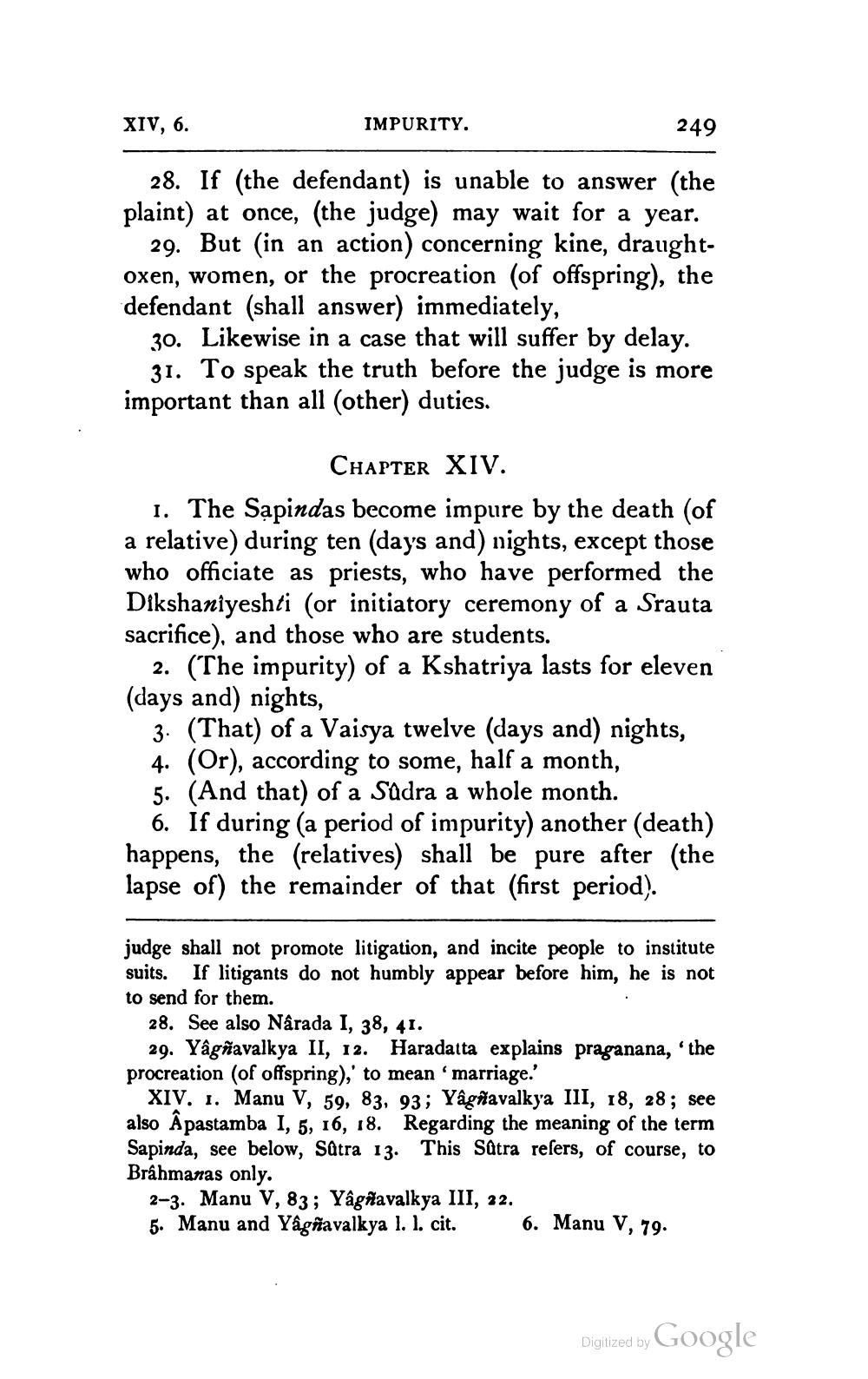________________
XIV, 6.
28. If (the defendant) is unable to answer (the plaint) at once, (the judge) may wait for a year.
29. But (in an action) concerning kine, draughtoxen, women, or the procreation (of offspring), the defendant (shall answer) immediately,
30. Likewise in a case that will suffer by delay. 31. To speak the truth before the judge is more important than all (other) duties.
IMPURITY.
CHAPTER XIV.
1. The Sapindas become impure by the death (of a relative) during ten (days and) nights, except those who officiate as priests, who have performed the Dikshaniyeshti (or initiatory ceremony of a Srauta sacrifice), and those who are students.
249
2. (The impurity) of a Kshatriya lasts for eleven (days and) nights,
3. (That) of a Vaisya twelve (days and) nights, 4. (Or), according to some, half a month, 5. (And that) of a Sûdra a whole month.
6. If during (a period of impurity) another (death) happens, the (relatives) shall be pure after (the lapse of) the remainder of that (first period).
judge shall not promote litigation, and incite people to institute suits. If litigants do not humbly appear before him, he is not to send for them.
28. See also Nârada I, 38, 41.
29. Yâgnavalkya II, 12. Haradatta explains praganana, 'the procreation (of offspring),' to mean 'marriage.' XIV. 1. Manu V, 59, 83, 93; Yâgñavalkya III, 18, 28; see also Âpastamba I, 5, 16, 18. Regarding the meaning of the term Sapinda, see below, Sûtra 13. This Sûtra refers, of course, to Brahmazas only.
2-3. Manu V, 83; Yâgñavalkya III, 22. 5. Manu and Yâgйavalkya 1. 1. cit.
6. Manu V, 79.
Digitized by Google




